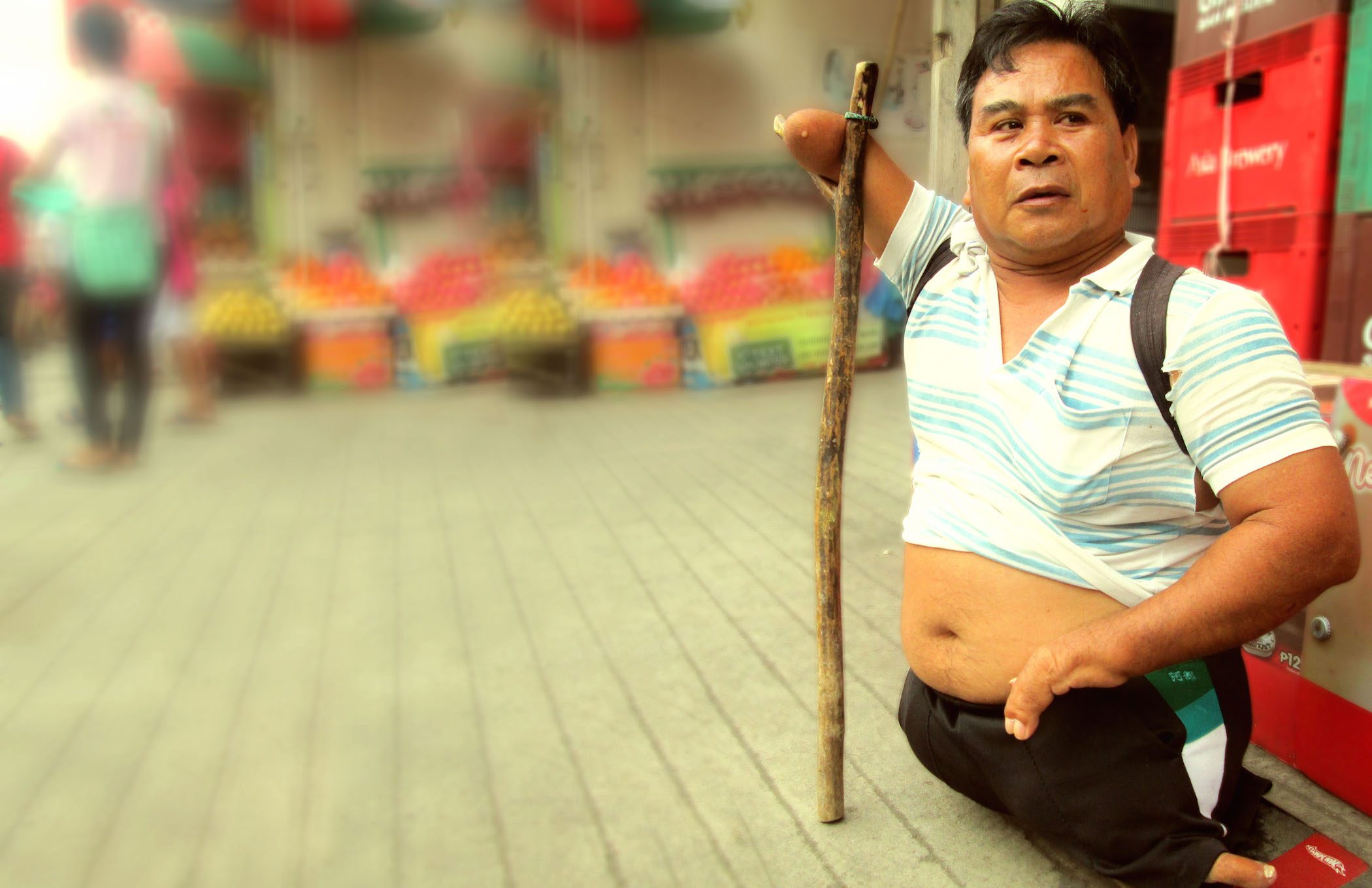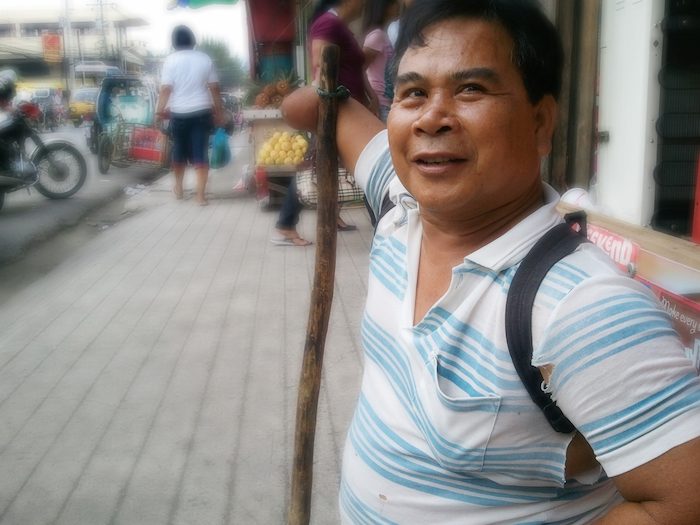SUMMARY
This is AI generated summarization, which may have errors. For context, always refer to the full article.

ANTIQUE, Philippines – Like everyone else, Felipe Oquinario was in a hurry to get somewhere else. As he waited to cross the busy road, he laid down his old, trusty skateboard on the uneven path and fearlessly dragged himself towards the intersection.
He caught a fruit vendor’s attention, who ran to his side and signaled passing vehicles to stop. After safely crossing the street, he turned to the vendor and smiled. “Salamat (thank you),” he said.
People without disabilities can easily cope and adapt, but for those born with certain conditions, they face daily discrimination. For Oquinario, 52, hard stares and cruel laughs are part of his daily life.
“Society will always have something to say about people like me. I will always see scornful eyes and hushed-up whispers about me begging for alms but if I will entertain them, it will just frustrate me,” Oquinario said.
“The technique is to trust God and look at the bright side. If these people don’t appreciate my existence, I know God does,” he added.
Daily prejudice
In 1961, in a distant barrio in San Remigio, Antique, Oquinario was born with congenital amputation. He was born without both legs, half of his right arm, and with a claw-like left hand.

Congenital amputation is the absence of a fetal limb or fetal part at birth. Babies with this condition are usually born with all or part of a limb missing – ranging from a missing part of a finger to the absence of both arms and both legs.
This may be caused by the constriction of fibrous bands within the membrane that surrounds the developing fetus, or the exposure to substances known to cause birth defects.
Despite being different, his parents treated him like a gift and made every effort to protect him from discrimination. But even his own parents could not fully shield Oquinario from the people around him.
At an early age, Oquinario suffered from ridicule. People would call him a son of an engkanto, a Filipino mythical creature with unusual features.
“I never had a friend when I was young. I just used to watch my siblings from our window while playing with their friends. I was already 15 years old when I mustered the courage to face other people,” Oquinario shared.
Oquinario even experienced rejection from his siblings, something he did not expect to come from family. “Once, when I tried to help my brother in cleaning the house, he told me that I will only destroy what has been fixed,” he recounted. “Sometimes, I felt useless.”
Because of the rejection he received even from his own home and community, Oquinario decided to seek his fortune elsewhere. He found himself in the streets of San Jose de Buenavista, the capital of Antique. For 10 years, he made T.A. Fornier Street his home and has since become a familiar face to residents.
“I have wandered from different places. I have reached the most peaceful and noisy of places that I could possibly reach but I always find myself coming back here. I guess I have found a home right at this very place,” Oquinario said in Kinaray-a.
Oquinario is proud to claim that he feels at home with his newfound friends and family: the vendors along the streets, security guards of nearby establishments, tricycle drivers parking on the sidewalk, and the regular passers-by.
But one thing he could not avoid were the stares. “It is obvious. I am not gifted with sexy abs and sensual muscles but my body figure tends to attract more eyes because of my disability,” he said with a half grin.
Oquinario vividly recalled how a young girl passed by, gave him a curious look, then asked her mother why he looked that way.
But he has learned to shrug it off. “I am used to it,” he said.

Accepting his body
Oquinario’s condition is rare, with only an estimated one in 2000 babies born with it, although the exact cause of congenital amputations is unknown. Experts say that most birth defects have one or more genetic factors and one or more environmental factors.
Many cases of congenital amputation are not diagnosed until after the baby is born. Although ultrasound examinations may reveal the absence of a limb in some developing fetuses, routine ultrasounds may not pick up signs of more subtle defects.
While an acceptable treatment for children born with congenital amputation is to fit the child early on with a functional prosthesis or an artificial replacement, the Oquinario family did not have the means for it. (READ: FAST FACTS: What persons with disability are entitled to)
Oquinario is still thankful because his left hand is functional, so he is not dependent on other people for basic tasks. (READ: ‘Empower people with disabilities’)
“Although I envy normal people who can freely and energetically move and do whatever they want, I have already learned to embrace this life,” he said.
“I couldn’t imagine myself having all complete limbs. These incomplete limbs were given as a gift from God.” – Rappler.com
Add a comment
How does this make you feel?
There are no comments yet. Add your comment to start the conversation.